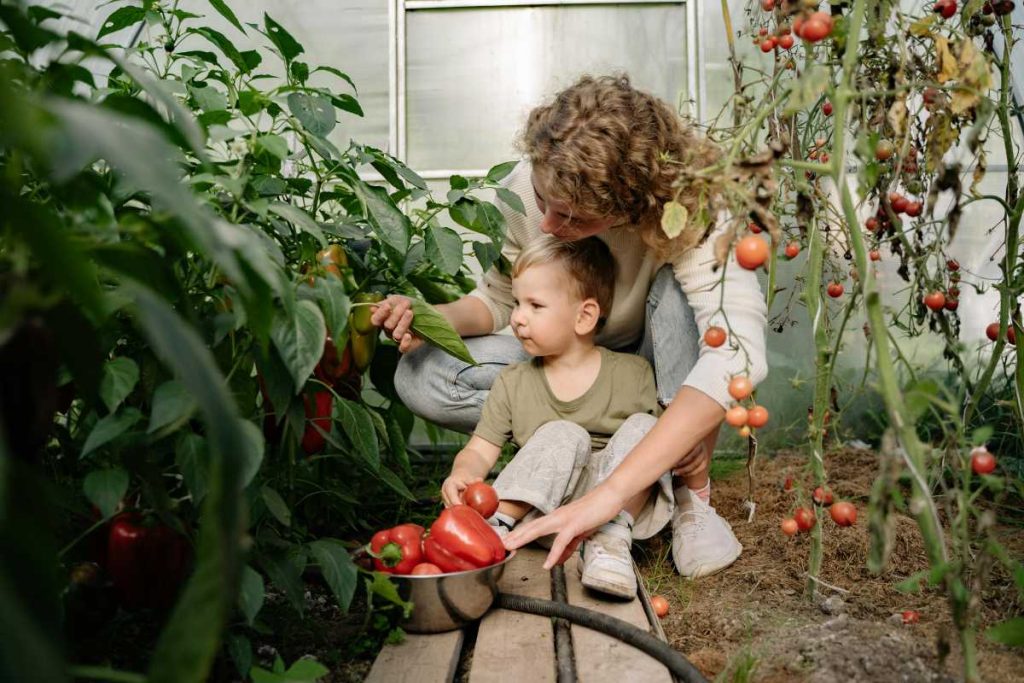Helping your kids develop healthy habits early on is one of the most valuable gifts you can give them. These habits lay the foundation for a lifetime of well-being, encouraging them to make positive choices as they grow. While kids may need guidance along the way, it’s easier than you think to instill habits that will benefit them long-term.
Here are seven essential healthy habits every parent should know to ensure their children live happy, active, and balanced lives.

1. Eat a Balanced Diet
One of the most important habits for kids is developing a healthy relationship with food. Encourage a balanced diet rich in fruits, vegetables, whole grains, and lean proteins. It’s not about restricting foods but teaching kids the importance of nutritious choices that fuel their bodies and minds.
- How to Encourage It:
- Make family meals a regular occurrence, where healthy foods are available.
- Involve your children in cooking and meal planning to get them excited about healthy eating.
- Lead by example: eat the foods you want them to eat.
Quick Tip:
Make healthy snacks readily available, like sliced fruits, yogurt, or whole grain crackers, to encourage better snack choices.
2. Get Regular Exercise
Physical activity is vital for kids’ health. It helps build strong muscles and bones, promotes better sleep, and improves mood. Developing an active lifestyle early on makes it more likely they’ll carry that habit into adulthood.
- How to Encourage It:
- Make exercise fun by engaging in family activities like biking, hiking, or playing sports.
- Limit screen time and encourage outdoor play.
- Provide toys and equipment that promote physical activity, like balls, jump ropes, or bikes.
Quick Tip:
Turn physical activities into fun challenges. For example, challenge your child to see who can do more jumping jacks or who can run faster across the yard.

3. Get Enough Sleep
Sleep is crucial for growth, brain development, and overall well-being. Children need more sleep than adults, and having consistent sleep patterns helps them stay alert and focused during the day.
- How to Encourage It:
- Establish a regular bedtime routine that includes winding down with quiet activities like reading or storytelling.
- Keep bedtime and wake-up times consistent, even on weekends.
- Create a sleep-friendly environment with minimal distractions and a comfortable space.
Quick Tip:
Try a relaxation routine before bed, such as dimming the lights, reducing noise, and doing breathing exercises, to help your child transition to sleep more easily.
4. Practice Good Hygiene
Teaching kids the basics of good hygiene is essential for their health and the health of those around them. Regular habits like brushing teeth, washing hands, and bathing are crucial in preventing illness and promoting good overall hygiene.
- How to Encourage It:
- Turn hygiene routines into fun games. For example, sing songs while brushing teeth or set a timer to see how long they can wash their hands.
- Reinforce the importance of hygiene by explaining why it matters in simple terms they can understand.
- Make hygiene products appealing by choosing toothbrushes with fun designs or colorful soap.
Quick Tip:
Establish a hygiene checklist for morning and evening routines to ensure consistency and make it feel like an accomplishment.

5. Stay Hydrated
Kids often forget to drink water, especially when they’re busy playing or engaged in other activities. Staying hydrated is essential for maintaining energy levels, aiding digestion, and supporting brain function.
- How to Encourage It:
- Provide your child with a fun water bottle they can carry with them throughout the day.
- Serve water with meals instead of sugary drinks.
- Set reminders during the day to ensure they’re drinking enough, especially during active play or hot weather.
Quick Tip:
Infuse water with fresh fruits like lemon, cucumber, or berries to make hydration more appealing.
6. Manage Emotions in a Healthy Way
Emotional well-being is just as important as physical health. Teaching kids how to express and manage their emotions helps them build resilience and handle stress in positive ways.
- How to Encourage It:
- Encourage open conversations about feelings by asking them how they feel and listening without judgment.
- Teach relaxation techniques such as deep breathing, mindfulness, or yoga to help them manage stress.
- Model healthy emotional expression by showing how you deal with your own emotions in challenging situations.
Quick Tip:
Create a “feelings chart” to help your child identify and express their emotions, especially when they find it hard to explain what they’re feeling.
7. Limit Screen Time
In today’s world, screens are everywhere, and while some screen time is okay, it’s essential to set limits to ensure it doesn’t negatively impact physical or mental health. Excessive screen time can interfere with sleep, physical activity, and even social interaction.
- How to Encourage It:
- Set clear limits on daily screen time and enforce screen-free zones, such as during meals or in bedrooms.
- Encourage creative, screen-free activities like arts and crafts, reading, or outdoor play.
- Use educational content during screen time and co-view whenever possible to ensure quality interaction.
Quick Tip:
Offer alternatives like board games, puzzles, or hands-on activities to help kids find fun ways to spend time without screens.
Conclusion
Helping your child develop healthy habits now will set the stage for a lifetime of well-being. From balanced eating to emotional health, these seven healthy habits are simple to implement but powerful in their long-term benefits. By practicing consistency, providing encouragement, and modeling the habits yourself, you can help your child grow into a strong, happy, and healthy individual.
Start today by incorporating these habits into your family’s daily routine, and watch as your child thrives physically, emotionally, and mentally!

